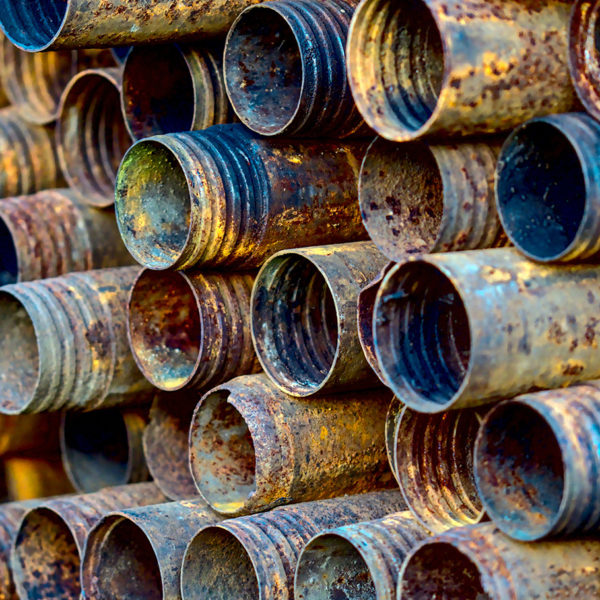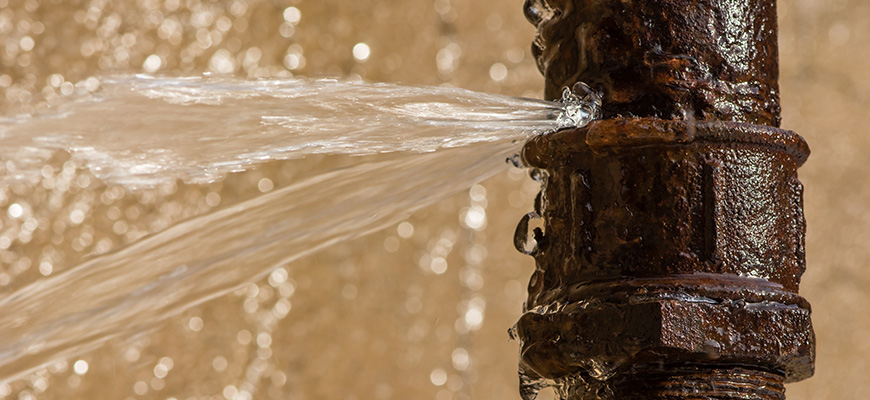Do you ever feel like your home is constantly under siege from invading armies? Well, that’s probably because your home is constantly under siege from invading armies: dirt, dust, grime and germs. And yes, those invaders are not happy campers when they invade your abode: moisture, humidity and condensation are the main reasons for rusting fixtures in your home plumbing system. And the most common point of attack? Your water heater. Anything from a slow drip to a heavy downpour can cause rust and scale to build up in your home’s plumbing. The good news is that it doesn’t take much to deal with this problem before it gets out of hand and wreaks havoc on other parts of your house. Follow these tips to keep rust at bay in your home piping system.
Water Heaters Are Your Best Defense
If you suffer from frequent rust, scale and condensation issues in your water heater, then it’s time to get serious about preventing rust in your plumbing system. Once rust gets started in your water heater, it can spread to fixtures and appliances in your home, causing expensive repairs and repairs. Water heaters are usually the first thing that rusts. This is because they are made of iron and iron rusts when it gets wet. This is why you should change your water heater’s rubber hose every few years to refresh the rubber and prevent the water heater from rusting up. But aside from the rubber hose, it’s also important to remember to change your water filter every few months, if not once a month. When contaminants and impurities are left in your water heater for too long, it can lead to rust and corrosion in your plumbing system. So, let’s make sure that your water heater is rust-free and piping systems are properly maintained.
Ventilation is Key
When it comes to preventing rust in your home piping system, the most important thing you can do is have adequate ventilation. This is because excess moisture can lead to condensation, which is the main cause of rust in your home plumbing. Bad ventilation can lead to a buildup of humidity in your home, which is also a major cause of condensation and rust in your plumbing. The easiest method of combating humidity and stopping condensation in your home is by installing a dehumidifier. You can also spray your walls with Lysol or Lysol Wipes to help prevent the buildup of humidity. When it comes to excessive moisture in your home, you can also install a programmable thermostat with a humidity sensor. This will help you regulate the temperature of your home, keeping it from getting too warm during the day and too cold at night.
Know the Signs of Rust and Scale
Frequent rust and scale in your home plumbing are indicators that you need to address the problem before it gets worse. There are three major signs of rust and scale in your plumbing: a rusty smell, a rusty sound and a rusty-looking fixture. If you notice any of these signs, it’s time to act. Rusty Smell – This one is pretty self-explanatory. When rust builds up in your piping system, it will usually give off a very strong, pungent smell. If you notice that the smell coming from your water heater or your drains is especially strong, it might be a sign that you have a bigger issue brewing. Rusty Sound – When you turn on a faucet or turn on the water to a shower or sink, you’re probably not imagining the sound of a hissing or rumbling coming from the pipes. This is because when water moves through pipes, it creates a sound. And if the sound coming from your pipes is different from usual, it’s a sign that something is off. Rusty-Looking Fixture – Fixtures in your home are usually made of metal or plastic. If you notice that your faucet or toilet is showing signs of rust, then it might be time to change it.
Prevent Dehumidification in Your Home
If you’ve noticed frequent rust in your home plumbing, then you should also keep a close eye on the amount of dehumidification in your home. Excess moisture in your home can lead to condensation, rust and excessive costs for repairs. To prevent dehumidification from happening in your home, you need to make sure that there is sufficient ventilation. If there isn’t enough ventilation, air will rush into the house and push out the moisture, preventing it from building up inside your walls. You can make sure that enough ventilation is provided by installing a fan in your attic or installing an attic fan. These will help prevent excess moisture from building up in your home and causing problems like rust, scale and excessive costs for repairs.
Be Aware of Excess Humidity
If you’ve noticed excessive rust in your home plumbing system, then excessive humidity might also be to blame. Excess humidity can lead to condensation, rust and an excess of minerals that are usually associated with heavy metals. Excessive humidity is usually caused by a leak in your home piping system or a damaged water heater. Excess humidity can be prevented by installing a water filter on your kitchen faucet and making sure that there aren’t any leaks in your piping system. You can also install a dehumidifier in your home’s utility room or basement to help reduce the level of humidity in your home.
Don’t let condensation build up
Although it might sound basic, it’s quite important to remember that excessive moisture in your home can lead to rust, scale and dehumidification. If there is excessive moisture in your home, the walls, floors and other surfaces will start to feel damp. The best way to prevent this from happening is by installing a dehumidifier in your home’s utility room or basement. Dehumidifiers are usually used to reduce the amount of moisture in the air after it rains. If you use it as a dehumidifier in your home, then it can reduce the amount of moisture in your walls, floors and other surfaces.
Keep your Plumbing Clean and Dry
Finally, the best way to prevent issues with rust in your home plumbing system is by keeping your plumbing clean and dry. When water moves from the kitchen faucet to the water heater, it leaves behind minerals. But these minerals will sometimes drop onto the floor or into the pipes if you don’t clean them up. The minerals will eventually build up and cause problems in your plumbing system if you don’t clean them up. Keeping your plumbing clean and dry is one of the best ways to prevent rust in your home plumbing system. You can do this by always having a clean and empty dishwasher, by keeping your sink drain and garbage disposal clear, and by always washing your hands with antibacterial soap before touching any part of your plumbing system.


